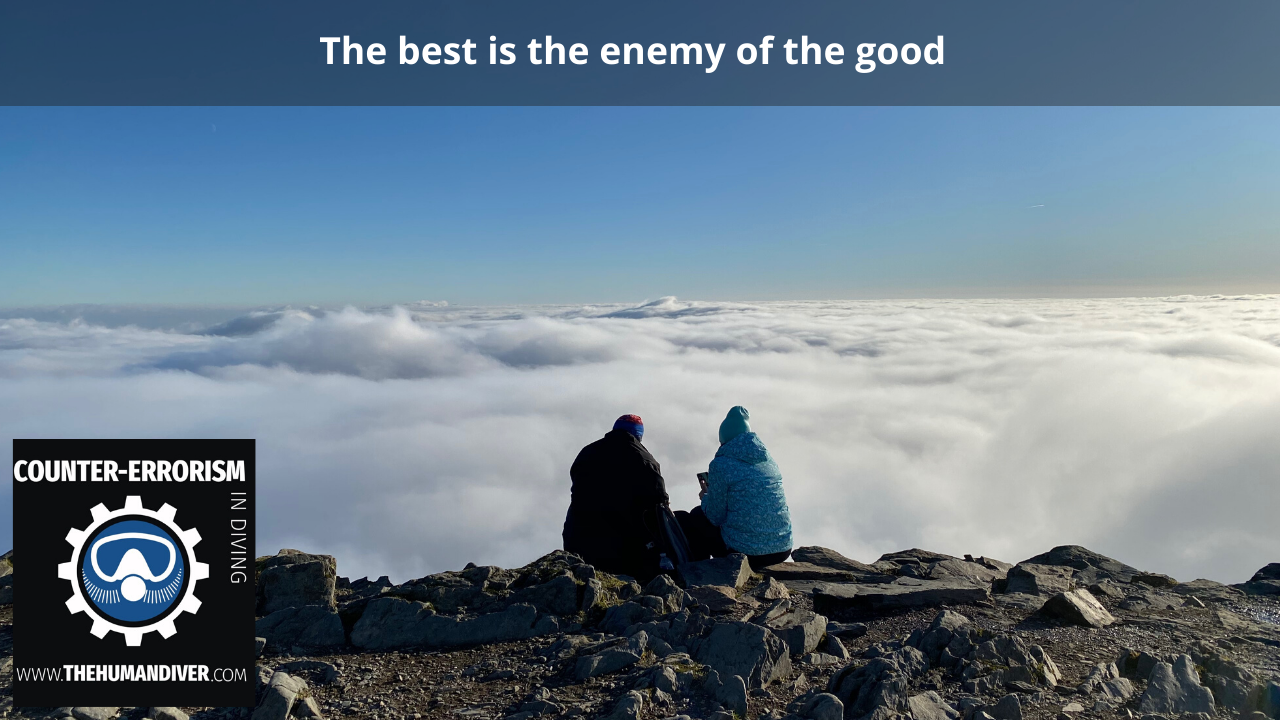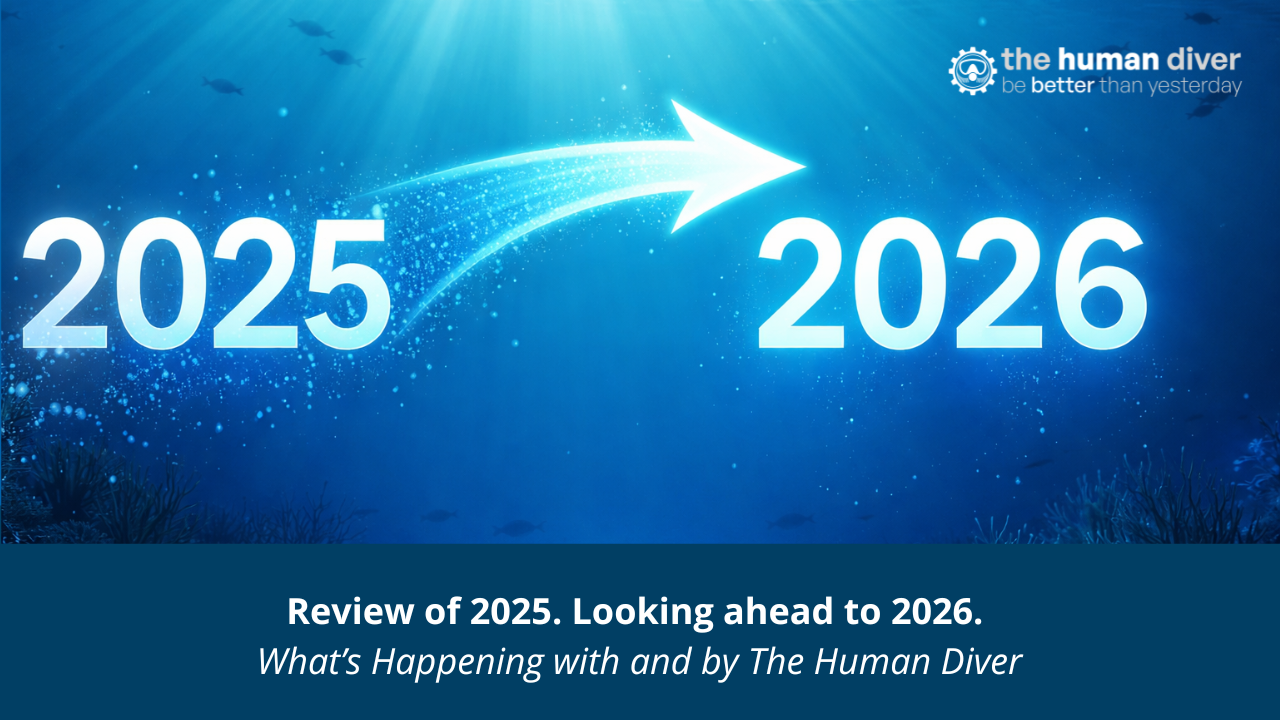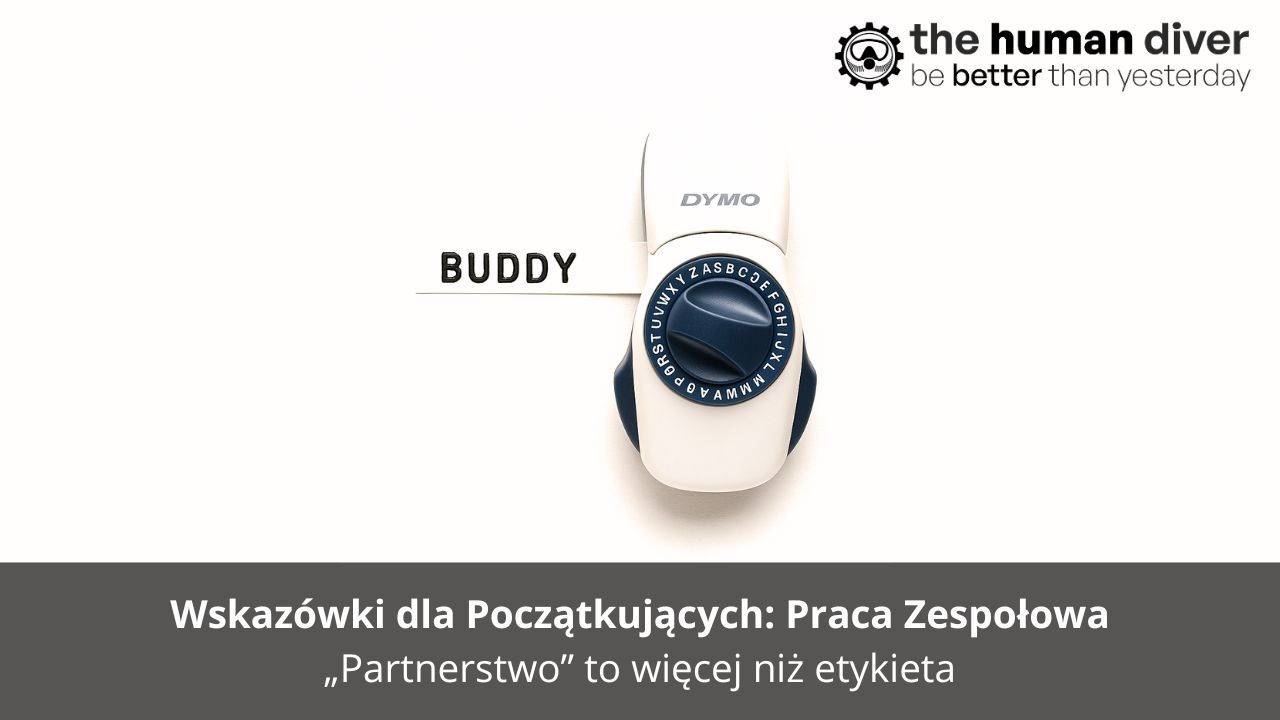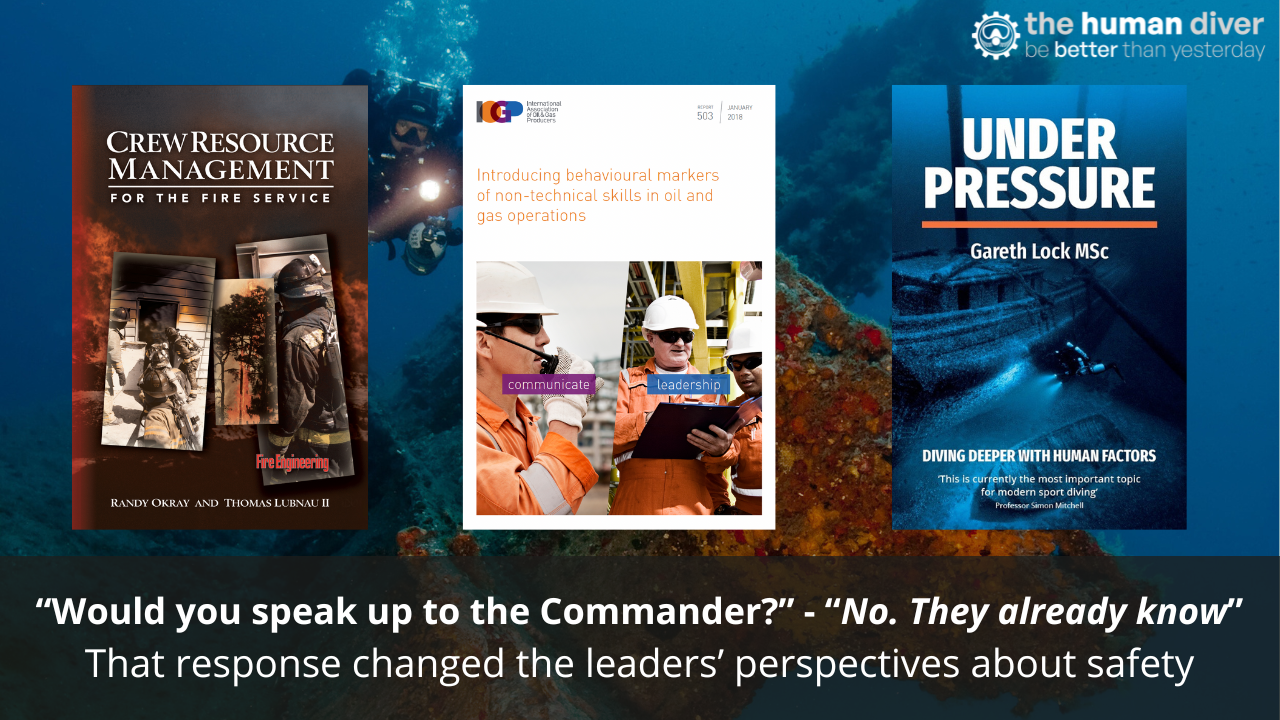
The best is the enemy of the good
May 08, 2020A short while ago Gareth asked me to write a blog for this website, as a newly qualified Human Factors in Diving Instructor. We talked about a subject and all seemed ok. But try as I might, I just could not explain the topic as eloquently as I wanted. So, we had another chat and I tried a different theme. Same result. The problem was that no matter what I wrote, I just didn’t feel it matched up to what Gareth and the other new instructors had written. And that’s when it hit me- I was out Human-Factoring myself.
I’ve been instructing various sports for twenty years and consider myself to be a capable and cautious instructor. I’ve been teaching diving for ten years, so you think by now I’d be quite happy with my level of knowledge. But that’s the thing; almost every time I step foot into the classroom, I’m waiting for someone to call me out, to realise that I actually don’t have clue what I’m talking about and I don’t know anywhere near enough about the subject. As a new instructor for Human Factors, I’m feeling this especially keenly now. When I told Gareth this he pointed out that I still know far more than my students and if I did get any questions I didn’t know the answer too I could fall back on my usual habit of telling the student I didn’t know and that I’d find out for them (which usually works well as it forces me to research the subject I didn’t know). I was still worried though. As a student learning about Human Factors, everything had seemed obvious, almost common-sense. Surely my students would feel the same thing? And that’s part of the problem with explaining to people why they need to learn about Human Factors, some people do indeed just see it as common-sense stuff, so why should they learn it?

And my attempts to write this blog perfectly illustrate why. As obvious as a reason may be, until it is pointed out to you, it’s incredibly difficult to recognise it in yourself. The people who need this course the most are the ones who will say, ”well yes, that’s what most people might do, but I’d never do that” when we discuss an incident and why it happened.
It took a long conversation with a close friend about my frustrations of trying to write this for me to see what I was doing. A lot of people have heard of the Dunning-Kruger effect. This is where someone with little knowledge of a subject believes they have far more knowledge than they do. It’s proved time and again when divers start a course many think it will be easy, after all, all you have to do is put the breathey thing in your mouth and swim, right?! The interesting thing that Dunning and Kruger found was that at the other end of the scale, experts believe that they don’t know anything. Because they understand the scope of the subject, they’ve learned that they’ve only just scraped the surface of it, after all, it’s impossible for even the world’s best experts to know absolutely every single thing there is to know about a subject.
And so here we are. I, as a new instructor, know nothing. Although, I certainly have a good idea of how much more there is to know. So maybe I do know something, after all.
Jenny Lord

Jenny is a full-time technical diving instructor. Prior to diving, she worked in outdoor education for 10 years teaching rock climbing, white water kayaking and canoeing, sailing, skiing, caving and cycling, amongst other sports.
Her interest in team development started with outdoor education, using it as a tool to help people learn more about communication, planning and teamwork.
Since 2009 she has lived in Dahab, Egypt teaching SCUBA diving. She is now a technical instructor trainer for TDI, advanced trimix instructor, advanced mixed gas CCR diver and helitrox CCR instructor.
Jenny has supported a number of deep dives as part of H2O divers dive team and works as a safety diver in the stunt industry.
Want to learn more about this article or have questions? Contact us.










